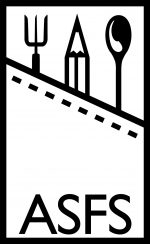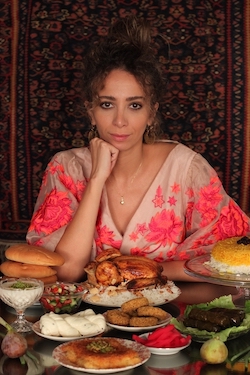
How long have you been a member of ASFS and what drew you to the organization?
As soon as I enrolled in my graduate studies at BU, I became a member of ASFS and I’ve been loving it ever since! I was immediately drawn to connecting with people who share the same passion and interest and have now built new friendships and acquaintances, thanks to ASFS. I wanted to network and be in touch with updates in the field, new research, and opportunities.
You have a Bachelor of Arts in Mass Communication from the American University of Sharjah and a Master of Arts in Television and Digital Journalism from the American University in Cairo – do you use any of this training while you’re pursuing your Master of Arts in Gastronomy?
Absolutely! I try to bridge my food research practice with what I’ve learnt throughout the years training and working in media and film. Just recently, I experimented with a research paper I’ve worked on by turning it into a short film. I’m also working on developing a documentary series that looks into the history of food in Southwest Asia and North Africa (SWANA) in addition to founding @sufra_kitchen, a social media platform dedicated to SWANA food history. I believe that academia should always be open and accessible to a wider audience, sharing our knowledge and creating a channel of communication with other fields such as media, film and the arts is really important, especially to a multidisciplinary field like food studies.
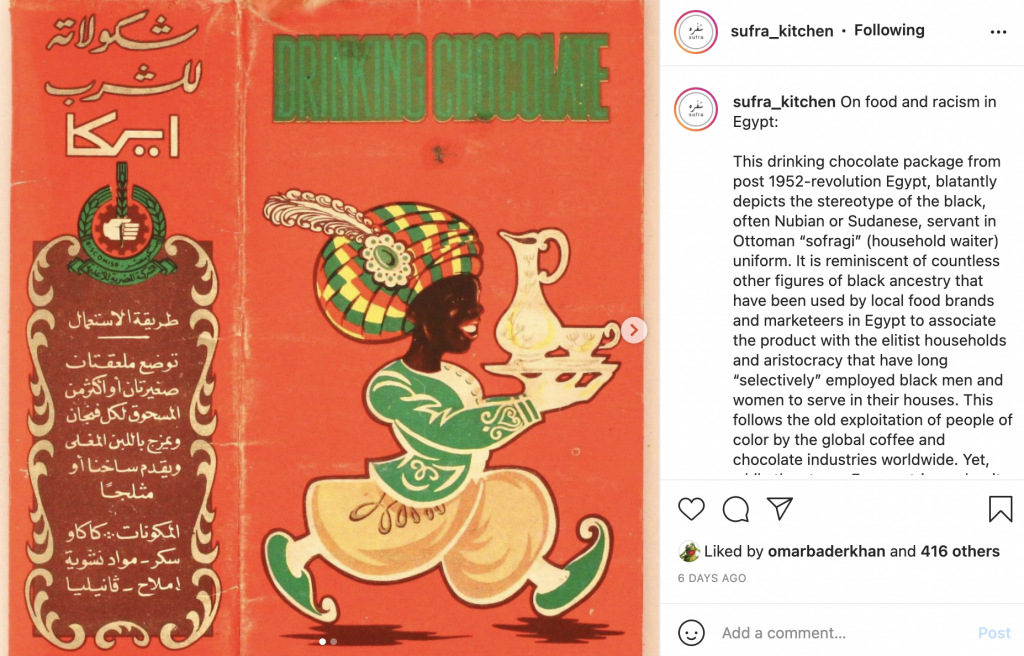
Could you tell us more about your project @sufra_kitchen, which is dedicated to the food history of the Southwest Asia & North Africa region?
@sufra_kitchen was born out of my need as a researcher to collect, archive and share information and visuals that I come across while researching the history and culture of food that we have in Southwest Asia and North Africa. It’s a place to celebrate the unique, yet, connected foodways that highlight the cultural, social, racial and religious diversity of the region. I also wanted to share all the exciting ephemera (magazines, ads, menus, cookbooks, photos, etc) related to food that have been forgotten with the lack of libraries and archives that are focused on our region. So, what better way to do this than social media! And little did I know, it yielded a large following that nears 10K in just a few months, and, most importantly, connects me to so many inspirational chefs, researchers, artists, and food bloggers from across the region and world. In fact, I’m now in plans to expand what I do with @sufra_kitchen by extending the invitation to others to collaborate on the content, sharing their own diverse narratives and perspectives, and empowering minority and disadvantaged voices of SWANA, through food.
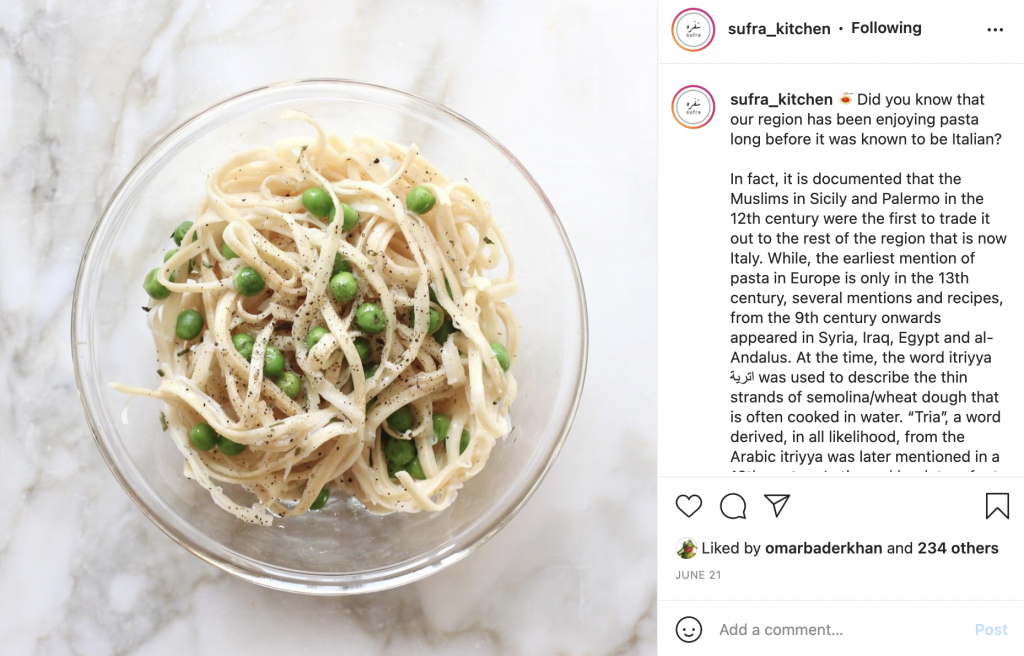
Why did you choose to spotlight this project within Instagram, and do you have advice for others who may want to do the same?
With social media comes accessibility and a wider reach for research. Reaching a wider audience than academics, and engaging them in a two way conversation is really great as I get to learn from others, share backgrounds and stories. Besides, the visual aspect of Instagram is great when most of the material I encounter is archival photos, documents and ephemera. And even though I struggle with keeping my posts under the 2200 characters limit imposed by Instagram, the account has become a digital visual archive of some sorts with open and free access to all- which is great! So if anyone out there who is looking to do the same, I’d say Instagram is a great way if you want to build an interactive conversation and a network around your project/research interest. The only thing you need to do is commit to keep it active while always providing value in the content, whether by sharing something new or empowering someone out there.
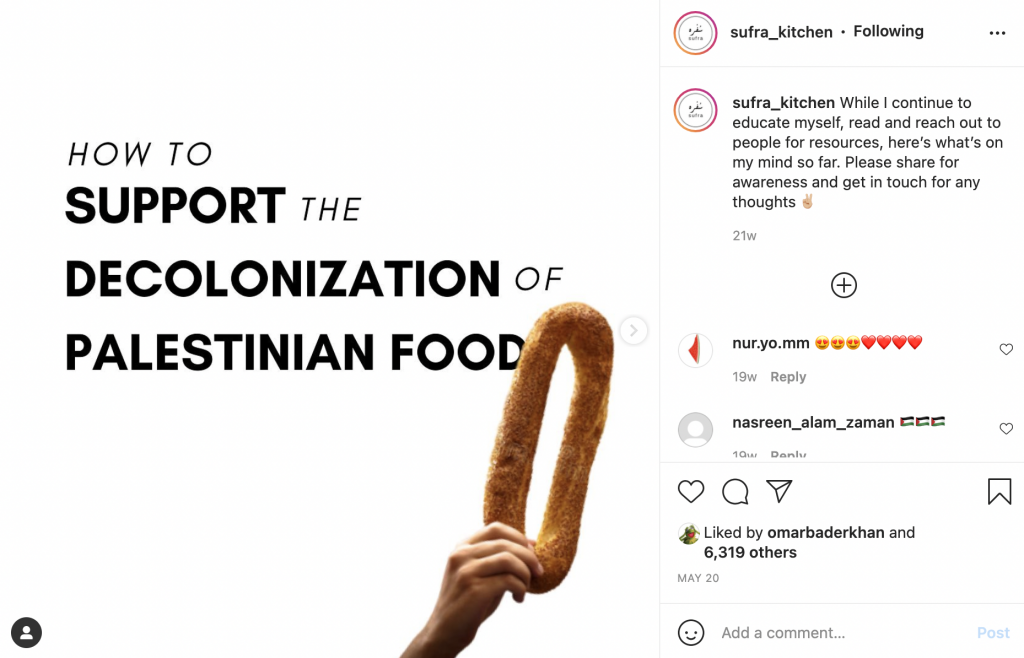
For the 2021 Just Food Conference you helped organize a panel called “Decoloniality of food: Global Cases of Power and Resistance” – can you tell us what you wanted the panel to accomplish, and any tips or tricks for other graduate students who are thinking of organizing panels in the future?
The panel “Decoloniality of food: Global Cases of Power and Resistance” which I organized at ASFS 2021 looked into how food lies in the heart of post-and-current colonized histories as dynamic sites of cultural battles, social transformation, economic exploitation, and survival.
The panel brought together research about the colonial history of fair trade bananas by Danielle Jacques, Kashmiri apples politics with Leda Cooks and Ifat Gazia, a creative deconstruction of Palestinian “maqlouba” by Jude Abu Zaineh, and a presentation by me on the history of European pastries in Egypt. It was a great experience, especially with the support of the ASFS organizers, who made the process easy and clear, and my professors at BU who encouraged me to do it. I would advise any graduate students out there to definitely go for it. They just need to plan a proposal well ahead in advance and everything else will fall into place!
What is your favorite food moment within a movie or film?
The food fight in Daisies (1966), a Czechoslovakian film, is such an iconic moment, with thickly iced cakes, extravagant hors d’oeuvres and champagne flying in the air. My personal favorite, though, is a scene from the Egyptian film, Al Naddaha (1977). In the scene, the female protagonist from the Egyptian countryside recites to an old urbanite lady the most decadent traditional recipe for making rice casserole with pigeon meat that is oven-cooked in milk and cream; a dish the old lady from the city yearns for since childhood. It’s a scene that strongly centers food in the heart of the Egyptian identity and the struggle to hold onto traditions.
